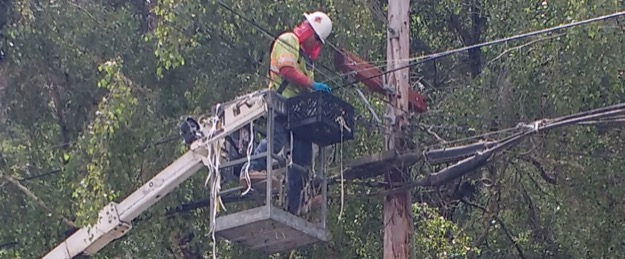CPUC considers crippling electric utilities' competitive fiber business
![Hydrogen Iodide at en.wikipedia [GFDL (https://www.gnu.org/copyleft/fdl.html) or CC-BY-SA-3.0 (https://creativecommons.org/licenses/by-sa/3.0/)], via Wikimedia Commons](https://www.tellusventure.com/images/2017/6/pge_transmission.jpg)
Dark fiber owned by private electric utilities in California could be more strictly regulated by the California Public Utilities Commission. A proposed decision, due for a vote by commissioners at next week’s meeting, would rewrite the rules that have governed Southern California Edison’s dark fiber business for the past twenty years. It only applies to one particular transaction for now, but it has serious implications for Pacific Gas and Electric’s telecoms ambitions in northern California, and for communities and competitive broadband providers that need an independent source of dark fiber, particularly for long haul, inter-city connections.… More

![By Steve Jurvetson from Menlo Park, USA (The Donald & Mark Wahlberg) [CC BY 2.0 (http://creativecommons.org/licenses/by/2.0)], via Wikimedia Commons](https://www.tellusventure.com/images/2018/1/trump_att.jpg)


![Sam Beebe/Ecotrust [CC BY-SA 3.0 (https://creativecommons.org/licenses/by-sa/3.0)], via Wikimedia Commons](https://www.tellusventure.com/images/2018/1/montana_vista.jpg)
![By U.S. Navy photo by Mass Communication Specialist 2nd Class Mark Logico [Public domain], via Wikimedia Commons](https://www.tellusventure.com/images/2018/1/sledgehammer.jpg)
![By Niklas Bildhauer (who also is User gerolsteiner91. (originally posted to Flickr as folder) [CC BY-SA 2.0 (https://creativecommons.org/licenses/by-sa/2.0)], via Wikimedia Commons](https://www.tellusventure.com/images/2018/1/stack_of_paper.jpg)
![By Credo Action (Protect Net Neutrality rally, San Francisco) [CC BY 2.0 (http://creativecommons.org/licenses/by/2.0)], via Wikimedia Commons](https://www.tellusventure.com/images/2018/1/sf_net_neutrality_demo.jpg)
